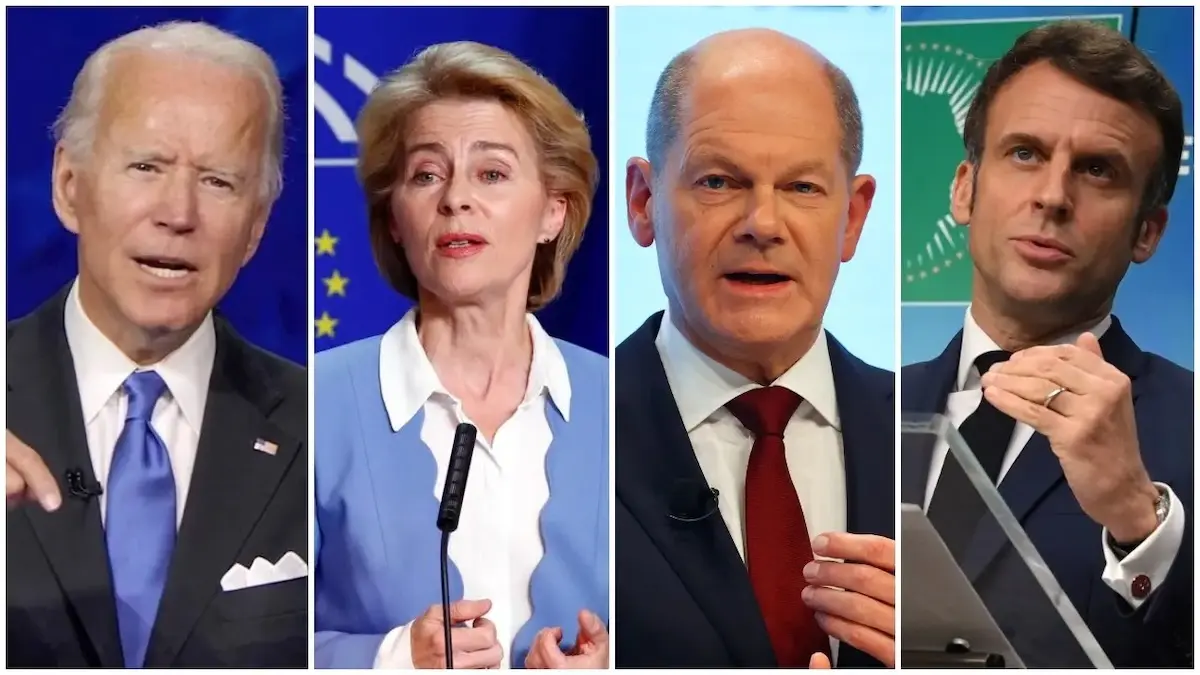A glimpse of the environment

Popular wisdom says that if you want to see God laugh out loud, all you have to do is tell him your plans. And the same, but in layman's terms, John Lennon used to say: life is what happens while we are making plans.
So you have to think that something unexpected will surprise us in the coming months as did 2019 the Covid pandemic, the invasion of Ukraine in 2022 and the Gaza conflict last October. History is full of similar examples, did anyone see the fall of the USSR or the Arab Spring coming.
As that NBA player used to say, making prophecies is very difficult and even more so when they refer to the future.
However, some things seem to be true and among the most important is that global warming will not stop, as shown by the poor results of the Dubai COP, no matter how much they want to embellish, and the goal of reaching zero emissions by 2050 will not be met.
We should stop cheating ourselves and - without giving up the fight - be realistic by spending more money on the inevitable adaptation to a warmer world because for now it is not yet possible to do without solid fuels.
Just one example: making an electric car requires rare minerals (lithium, cobalt) whose trade China controls, and its battery also requires 50 kilos of graphite.
Producing one ton of synthetic graphite requires 100 tons of coal, compared to 6 tons for steel or 12 tons for copper. And it turns out that coal is the most polluting source.
Along with the challenge of the emission of polluting CO2 particles into the atmosphere, which some still deny, the challenge posed by the exponential development of Artificial Intelligence seems to me to be the most serious that humanity must face in the short term because it will increase inequality between countries and between individuals and will make global regulation increasingly necessary, which will not be easy to agree upon.
It and robotization will also increase unemployment, at least in the short term. Of concern is the potential of Generative AI and its application to warfare, something Xi and Biden discussed at their last meeting in California. It is imperative to regulate its development and operation carefully so as not to slow its development while preventing its most dangerous applications from falling into the wrong hands.
In the coming months we will have elections in half the world and in fact they have already begun with those held in Taiwan. The most important are those in the United States because their outcome will impact not only their domestic policy but the entire planet. The possibility of a Donald Trump victory is real and this forces us to reinforce European security at the risk of being helpless.
There are also elections in India, the world's most populous country immersed in a worrying nationalist drift, and in Russia itself, although these matter less because we already know that Putin will win. Meanwhile, the countries of the Global South will increase their demands for a different distribution of power and other "less Western" rules to govern international relations.
Tension between the US and China will remain in any case, although the temperature will rise if Trump reaches the White House. Rare earths, minerals needed for the Artificial Intelligence revolution and semiconductors will confirm their conversion into combat weapons in a world with increasing regulatory and protectionist barriers (Trump speaks of a 10% tax on all imports), thus affecting globalization.
It is quite possible that current US restrictions on exports to China of semiconductors and AI will also extend to the realm of quantum computing, as both the US and Europe seek to curb the export of Chinese electric cars and seek to lessen China's dependence on rare earths and minerals needed for AI development. Bipolarity threatens trade barriers and a more unfriendly and insecure world.
Moreover, it is safe to predict that geopolitical divisions will hinder the necessary concerted action to address health or food security issues, when the recent Covid pandemic clearly demonstrated the futility of attempting to address global problems with local responses in a world that is now not only inextricably connected, but interdependent.
At least the world seems to be avoiding recession, inflation is being contained and the economy continues to grow, although the North American economy is showing greater resilience than the European one.
And then there are the open crises in Ukraine, Gaza and Sudan. In Ukraine, a Republican victory could withdraw American support and force Kiev to negotiate with Putin because Europe cannot replace his contribution, especially in the military and intelligence fields. It is very likely that the Gaza conflict will end badly, as always, and it will be necessary to decide what to do with that territory and with the Palestinians (will they end up expelling them again?) because there can be no security for Israel without justice for them, and Israel has not yet understood this.
And as Africa seems to matter less and less every day, no one is doing their utmost to stop the terrible humanitarian dramas in Sudan and Congo with their terrible aftermath of dead and displaced people.
Not to mention that the swords will continue to be held high in Taiwan, where China's growing internal difficulties should tend to postpone its rush to take over the island, despite how little Beijing has liked the results of the recent presidential election.
Jorge Dezcallar. Ambassador of Spain

